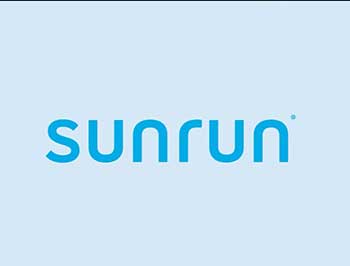Installing solar panels on your home is an excellent way to lower your energy bills while also reducing your carbon footprint. Two of the biggest players in the residential solar market are PosiGen and Sunrun.
While both companies aim to make solar power more accessible to homeowners, they have some key differences in their business models and offerings.
This article will compare and contrast PosiGen and Sunrun to help you decide which may be a better fit for your home.
A Brief Comparison Table
| Feature | PosiGen | Sunrun |
| Business Model | Solar leasing | Solar sales & leases |
| Upfront Costs | None | High purchase price or down payment |
| Contract Length | 20 years | 20-25 years if leasing |
| Ownership | PosiGen | Homeowner |
| Maintenance Responsibility | PosiGen | Homeowner |
| Availability | LA, CT, NJ, NY, FL | 22 states nationwide |
| Payment Structure | Fixed monthly lease payment | Variable utility bill savings |
| Battery Storage | Usually included | Additional purchase |
| Equity Building Focus | Yes, low-income households | No |
| System Size | Typically 6 kW | Customizable |
| Grid Connection | Remain connected | Can disconnect |
Overview Of PosiGen

Founded in 2011 and based in Louisiana, PosiGen primarily operates in the southern United States. PosiGen’s unique approach is allowing low-to-moderate income households to install solar panels with no money down.
Rather than a purchase, PosiGen offers solar as a service.
Homeowners enter into a long-term contract, typically 20 years, and pay a monthly fee to essentially “lease” the solar system. This avoids prohibitive upfront costs, making solar attainable for more homeowners.
The monthly fee is less than what they were previously paying for electricity from the grid. PosiGen handles maintenance and repairs as part of the contract.
Overview Of Sunrun
Founded in 2007 and based in California, Sunrun is the largest dedicated residential solar company in the US. Sunrun now operates nationwide.
Their primary model is selling solar panel systems outright to homeowners. However, Sunrun does also offer solar as a service leases and power purchase agreements in some markets.
With a purchase, Sunrun provides a warranty and monitors the system. However, the homeowner is responsible for repairs and maintenance. Sunrun offers financing options to help cover the upfront cost of purchasing a solar system.
Also Read: Comparison Among Sunrun, SunPower And Tesla Solar.
Pros And Cons Of PosiGen And Sunrun
PosiGen Pros
Lower Financial Barrier: The biggest advantage of PosiGen is the no money down option. With no upfront costs and monthly payments less than a traditional utility bill, solar is accessible to many more homeowners. PosiGen focuses specifically on building equity in lower-income communities through solar.
Comprehensive Service: With the lease model, PosiGen handles all monitoring, maintenance, insurance, and repairs for the system. You benefit from the solar energy without any responsibility for upkeep.
Predictable Costs: Since you’re not purchasing the system outright, costs are fixed at a pre-determined monthly rate with minimal fluctuations. This allows for better budgeting and cost control compared to utility bills.
Battery Storage Included: PosiGen’s solar leases often include a home battery. This allows you to store solar energy for use at night. Very few other companies automatically include battery storage.
PosiGen Cons
Limited Availability: PosiGen currently only operates in Louisiana, Connecticut, New Jersey, New York, and Florida. So its services are not an option for everyone.
Long Commitment: The 20 year contract is a serious commitment. There are penalties for early termination, and it can complicate selling your home.
No Ownership: You will not own the solar system under a PosiGen lease. So you don’t reap the property value benefits of owning your own system.
Still Reliant on Grid: While solar reduces your reliance on traditional utilities, you remain connected to the grid under a PosiGen lease. The goal is offsetting your use, not completely cutting ties with your utility company.
Sunrun Pros

Nationwide Service: With solar installations in 22 states, Sunrun can provide solar solutions to homeowners across much of the US. Their wide coverage makes them an option for more households.
System Ownership: Purchasing a solar system means you own it outright. This allows you to take advantage of tax credits, incentives, and property value increases from having your own system.
Flexible Options: Sunrun provides varied purchase and financing options to suit different budgets and needs. Options range from buying to loans to leasing.
Grid Independence Possible: Fully owning a solar system means Sunrun customers have the option to add battery storage and disconnect from the grid entirely. This provides maximum energy bill savings.
Sunrun Cons
Higher Upfront Cost: Buying a solar system involves significant upfront investment. Though financing helps, the high sticker price can deter some homeowners.
Responsibility for Repairs: With system ownership comes responsibility for any maintenance, repairs, and insurance. These costs fall to you rather than the company.
No Predictability: Your utility bill savings will fluctuate month-to-month based on factors like weather and system performance. There is less cost certainty than a fixed monthly lease payment.
No Equity Focus: Sunrun is not specifically targeting underserved markets. Their model does not inherently lead to greater solar integration in lower-income areas.
Also Read: Comparison Between WindMar And Power Solar
Which Is Right For You? Key Questions
If you’ve narrowed your solar search to PosiGen and Sunrun, answering the following questions can help decide which provider may be a better fit:
- What is your budget for upfront costs Vs. ongoing payments?
- How long do you plan to live in your current home?
- Do you prefer the certainty of consistent payments or variability based on production?
- Do you want to own your solar system?
- Are you looking to disconnect from the grid entirely?
- Is ease of system maintenance important to you?
- Does building equity in underserved areas matter to you?
Also watch the video!
Frequently Asked Questions (FAQ)
Some potential disadvantages of going with Sunrun include:
High upfront costs to purchase a solar system, even with financing options
Responsibility and costs for maintenance, repairs, and insurance fall to homeowners
Savings on utility bills vary month-to-month instead of consistent predictable payments
No battery storage included by default
Long lease terms of 20-25 years if going with their leasing option
No focus on serving low-to-moderate income households
ome of PosiGen’s main competitors in the residential solar leasing space include:
Sunrun
Vivint Solar
Tesla Energy
SunPower
Trinity Solar
Freedom Forever
SolarCity
Many of these competitors operate in different parts of the U.S. though, whereas PosiGen is focused in the South currently.
PosiGen was founded in 2011, so as of 2023 it has been in business for 12 years. The company started in Louisiana, focused on bringing solar solutions to low-income households in the area.
PosiGen has now expanded to serve parts of Connecticut, New Jersey, New York, and Florida as well. But the company is still newer and smaller than some competitors like Sunrun or Tesla Energy that have been around 15+ years.
There are a few options if you want to get out of a PosiGen solar contract:
Wait for end of term – PosiGen contracts are typically 20 years. At the end of the term, the contract expires and is not renewed. This option has no fees.
Buyout agreement – You may be able to pay an agreed buyout amount to terminate the contract early. Buyout fees vary.
Cancel after relocation – If you move, you can cancel your contract with 30 days notice and just a $250 fee.
Find a qualified buyer – You may be allowed to transfer the contract to another homeowner if they agree to take it over.
Prove financial hardship – In special cases of financial hardship like job loss, you may be able to exit the lease with no penalties.
Cancelling will usually incur fees of some kind. But there are paths to early termination in special circumstances. Discuss options with PosiGen’s customer service team if you need to get out of a contract.
Also Read: Is Semper Solaris Better Than Sunrun?
Conclusion
When weighing PosiGen and Sunrun, there are tradeoffs to consider. Overall, PosiGen is ideal if you want solar with minimal upfront investment. Their solar leasing model opens access to lower-income households. But it also involves a long-term commitment and lack of ownership.
Sunrun is best for homeowners who can manage higher upfront costs and want to reap the full benefits of owning their own solar system. You’ll retain more flexibility in the long-run. But Sunrun does require greater financial resources to purchase a system outright.
There are pros and cons to each approach. Your individual financial situation and priorities will determine which company may be a better solar services provider for your needs. Both PosiGen and Sunrun have innovative models that are expanding residential solar access in different ways.
PosiGen and Sunrun have distinct approaches to residential solar. But they share the common goal of making solar power more accessible. Choosing between the two companies ultimately depends on your budget, priorities, and solar needs. Homeowners across the financial spectrum can find a good fit with one provider or the other.
Leveraging the strengths of PosiGen’s leasing model or Sunrun’s ownership model can lead you to energy bill savings, smaller carbon footprint, and a brighter future powered by the sun.

